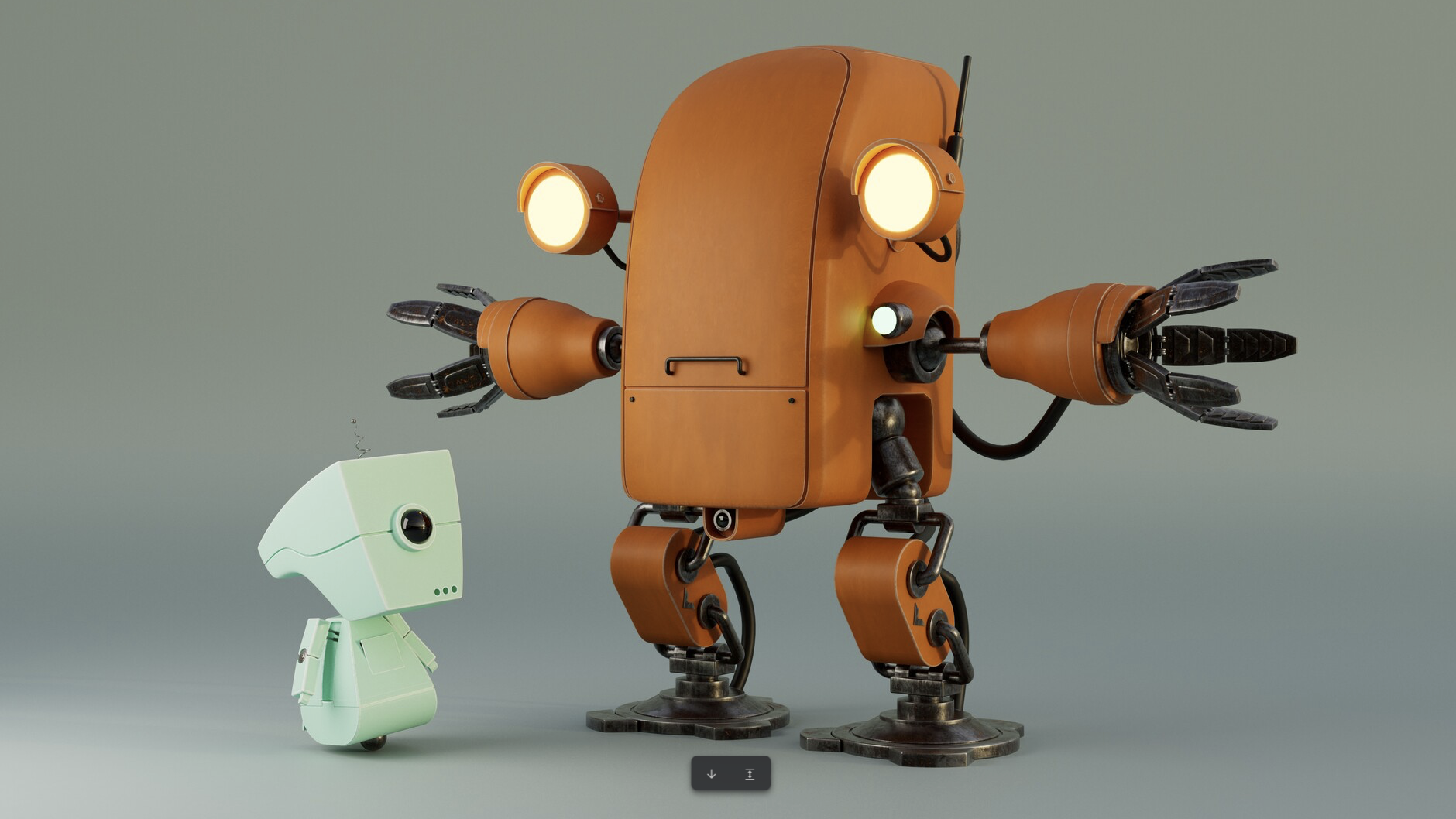Video calls are part and parcel of the hybrid working revolution, and they're a regular part of many creatives' communication with clients. As a result, we're always interested in tech that could upgrade the experience (the best monitors with webcams, for example), but Google's latest idea is giving major uncanny valley vibes.
Video conferencing software like Microsoft Teams and Apple's FaceTime already allow us to send cartoon 3D avatars to meetings in our place (we still have to be there and speak, we just don't have to show our faces). But Google's experimenting with AI-powered tech that would replace that solution with more realistic 3D avatars... realistic in the sense of a '90s video game, that is.
#ChatDirector is a research prototype that brings 3D avatars and automatic layout transitions to your 2D laptop screen, transforming online meetings to be more immersive and dynamic. Check it out → https://t.co/Vh0mhjnqw9 pic.twitter.com/jIafrd6fZdMay 29, 2024
Google ChatDirector is an augmented reality prototype that uses AI-generated 3D avatars and automatic layout transitions to make meetings "more immersive and dynamic". According to the post on Google's research site, the tool scans a user's face to create a 3D portrait model, which it can place on an avatar body in a virtual room.
Users can adjust the camera angle, and their 3D avatar will simulate eye contact with the person who's speaking. While the example on the site shows a bland office room, Google gave those attending the CHI Conference on Human Factors in Computing Systems a glimpse of another setting in what looks like a war room in some kind of virtual dungeon.
![[CHI 2024] ChatDirector: Enhancing Video Conferencing with 3D Portraits, Shared Scene & Transitions - YouTube](https://img.youtube.com/vi/mO2rZL48C1Y/maxresdefault.jpg)
In the demonstration footage, the video is glitchy and the avatars more than a little creepy. The most obvious comparison that comes to mind is Meta's much-mocked Metaverse avatars and the way they recall early PlayStation graphics. It should be stressed that this is a prototype not something that's about to roll out on Google Meet in the imminent future. All the same, a lot of people have expressed surprise that Google would share the project in this state.
"Wow you managed to do worse than Meta somehow," one person responded on X. "Rare called and they want their source code for GoldenEye 64 back," someone else wrote. "Google just created Teams, but made it horrible," was another response. Others compared it to the MS Teams Together mode, noting that it's not a popular function.
Microsoft, Meta and Google all appear to see potential demand for virtual conference technology, and it could become the way we meet if headsets like Apple Vision Pro ever truly take off. But so far users have demonstrated relatively little interest. The technology still need to improve significantly if 3D conference calls are really to become smoother and more immersive than old-fashioned video, and even then, it's not clear if it's really solving any pressing problem.
Get the Creative Bloq Newsletter
Daily design news, reviews, how-tos and more, as picked by the editors.

Thank you for reading 5 articles this month* Join now for unlimited access
Enjoy your first month for just £1 / $1 / €1
*Read 5 free articles per month without a subscription

Join now for unlimited access
Try first month for just £1 / $1 / €1

Joe is a regular freelance journalist and editor at Creative Bloq. He writes news, features and buying guides and keeps track of the best equipment and software for creatives, from video editing programs to monitors and accessories. A veteran news writer and photographer, he now works as a project manager at the London and Buenos Aires-based design, production and branding agency Hermana Creatives. There he manages a team of designers, photographers and video editors who specialise in producing visual content and design assets for the hospitality sector. He also dances Argentine tango.
